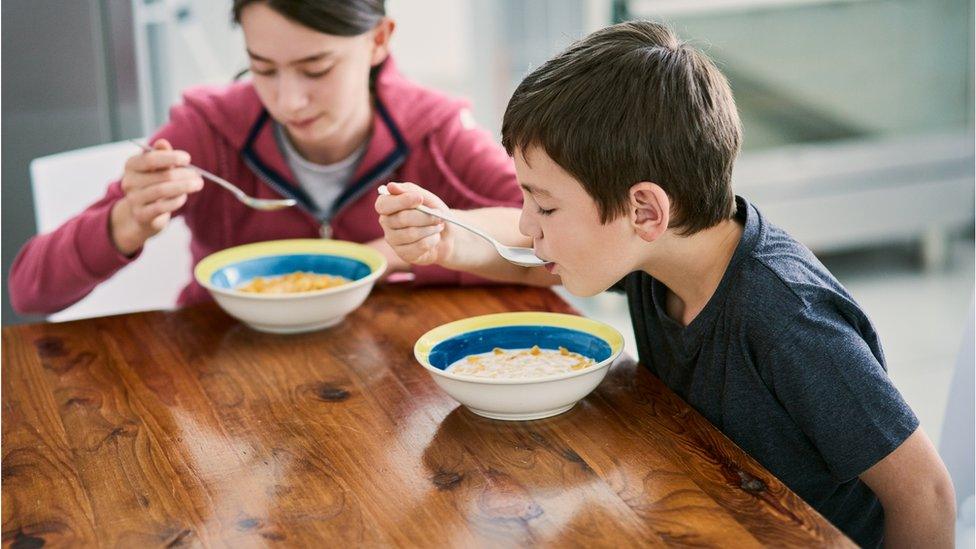Cost of living: Vulnerable babies 'at risk of dying over energy costs'
- Published
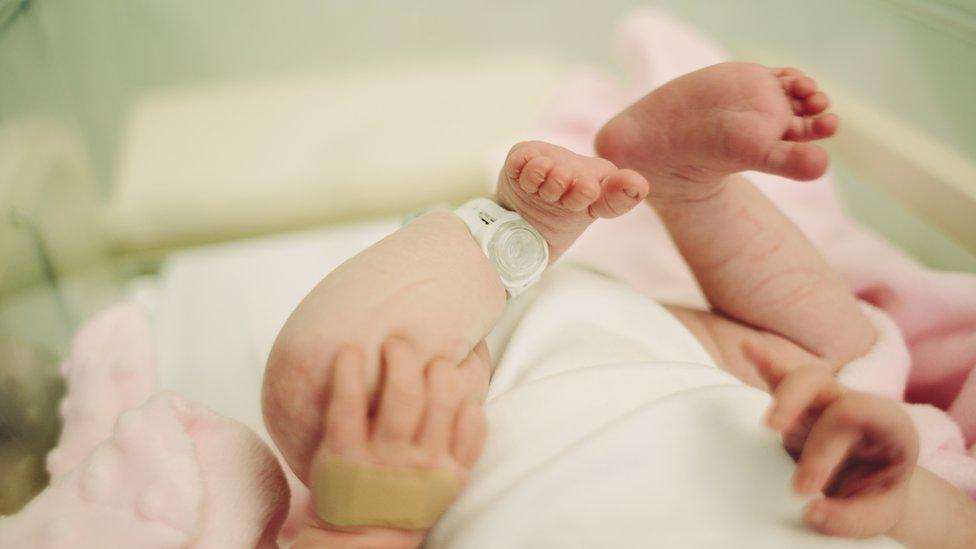
Vulnerable babies are at risk of dying as parents cannot afford to heat their homes, a consultant paediatrician has warned.
Dr Ray Nethercott said colleagues had considered returning discharged babies to wards as their temperatures were not being maintained at home.
The doctor, based at South West Acute Hospital in Enniskillen, called for urgent mitigations.
It comes as an academic warned parents were rationing formula as prices soar.
Dr Ciara Fitzpatrick, a lecturer at Ulster University, said some new parents are also having to make "unspeakable decisions" about how to feed their babies as the cost of living rises.
Speaking to BBC Radio Ulster's Talkback programme, Dr Nethercott said the mitigations were needed to prevent excess deaths amongst the younger and elderly population this winter.
The paediatrician, who is also the Royal College of Paediatrics and Child Health's (RCPCH) officer for Ireland, said there had been a significant escalation in children being admitted and discharged from hospitals.
"At one stage within the last few weeks, there were no paediatric intensive care beds available on the whole island of Ireland," he said.
"If we needed extra intensive care beds, we were going to have to admit to hospitals off the island."
'Unspeakable decisions'
Dr Ciara Fitzpatrick said some parents were rationing formula or weaning babies on to solids too early.
"This could have serious consequences for a child's health," she said.
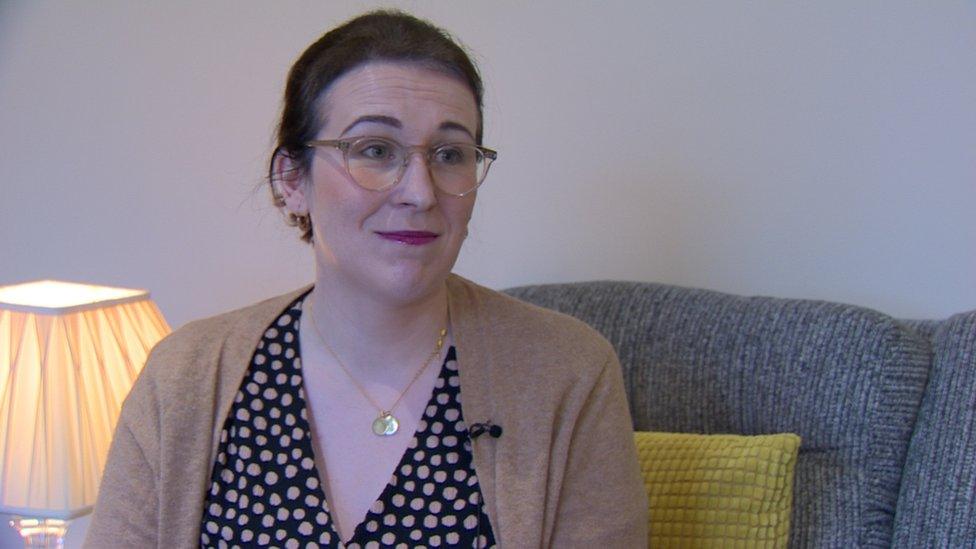
Dr Ciara Fitzpatrick says some parents are being forced to ration formula
Dr Fitzpatrick, who recently held a Crushed by the Cost of Living event at Stormont, said the situation was "unacceptable".
"Women, particularly lone mothers, are being assaulted by the Cost of Living Crisis," she added.
"Mothers of young babies are increasingly unable to afford expensive essentials such as baby formula, which has gone up in price with burgeoning inflation."
'People have nothing'
A baby bank based in County Armagh told BBC News NI referrals had doubled in a year.
"It's not just people on benefits," said the Reverend Elizabeth Cairns, of Baby Basics in Mullavilly.
"It's working parents who are not able to provide the basics."
Baby Basics uses donations to fill Moses baskets with nappies, baby grows and other essentials for new parents in need.
Reverend Cairns said: "We take referrals from social workers and health professionals. They are seeing people who have absolutely nothing.
"Last year we had 20-25 referrals. This year, so far, we've had 45-50."
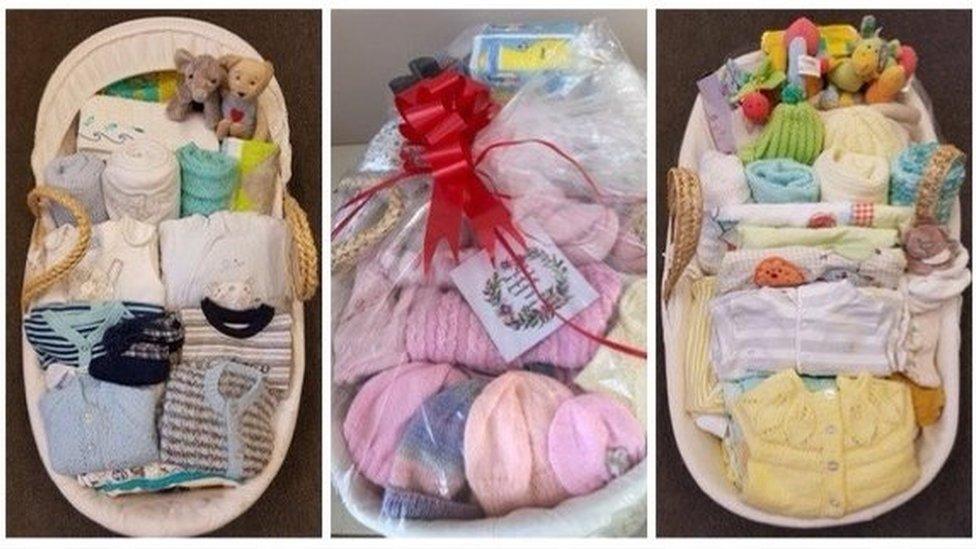
Some of the baskets put together by Baby Basics
While Baby Basics can provide some essentials, it cannot give out milk or other baby foods.
Many foodbanks do not stock formula either.
Research by First Steps Nutrition Trust, external shows the price of some infant formulas in UK supermarkets has risen more than 14% since August 2021.
New parents on low incomes may be eligible for the Healthy Start scheme, external to help with costs.
It is a prepaid card which equates to £8.50 a week for babies under one.
But many of the most available brands of formula are priced significantly higher at between £10-£16 per box.
"Parents should be made aware that there is no significant nutritional difference between brands of infant formula and therefore there is no need to buy more expensive formula," Dr Sibson added.

'Maternity leave is supposed to be a happy time'
One Londonderry mother BBC News NI spoke to lives with her three children, including a six-week old baby boy.
She's currently receiving statutory maternity pay and her partner is in work, but says she is still panicking about providing for her son.
"I'm on less than half my usual wage and I'm scared my ends are not going to meet," she said.
"He is constantly hungry. He is going through a tin of food a week."
Her baby formula cost £15.99 per tin, meaning her other children are having to go without.
"I can't buy as much fruit and veg for my other two. I'm panicking about energy bills," she said.
"It's awful. This is supposed to be a happy time."

About 80% of babies in Northern Ireland are either wholly or partially formula fed by the age of three months.
"That makes infant formula an essential food item. It's also an expensive food item," said Dr Sibson.
"We're worried that there will be an increasing number of families who are struggling to access infant formula for their baby."
An All-Party Parliamentary Group, external examined the costs of formula in 2018 and found parents were resorting to "unsafe practices" like watering down milk, or skipping feeds.
"We don't have any evidence that these problems have become more common in 2022, but it seems logical that that would be the case," added Dr Sibson.
'Out-of-date formula'
Annette Keenan works for the Waterside Action for Children Sure Start, external service in Londonderry.
"It's definitely got a lot worse in the last six months," she said.
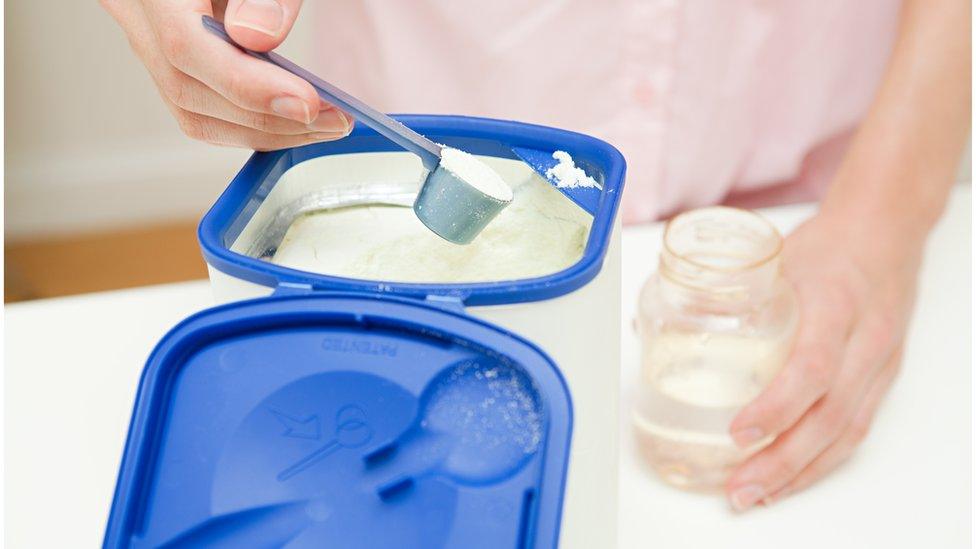
"We are bringing more mums to the foodbank for food. I took a woman while she was pregnant. She couldn't feed herself."
Ms Keenan said she'd heard of one struggling parent who had even considered using out-of-date formula.
"Then you get to the weaning stage, and fresh fruit and vegetables are promoted. But we're working with people who are trying to find alternatives.
"We're also seeing older children who are wearing clothes that are too small for them. Parents are worried about heating homes, especially if they have a new-born baby.
"They're embarrassed that they can't do what they want to do."
Northern Ireland Children's Commissioner, Koulla Yiasouma, said she was "terrified about what the situation will be coming out of winter".
"We've also heard stories of milk being watered down and of breastfeeding mothers going without food themselves.
"Families who got pregnant nine months ago... this is not how they imagined it would be."
She said a functioning executive had "never been more important".
"In the absence of an executive, in the absence of a government increasing social security in line with inflation, the only solution we have is for those of us who can afford it to donate," added Ms Yiasouma.


Related topics
- Published22 September 2022
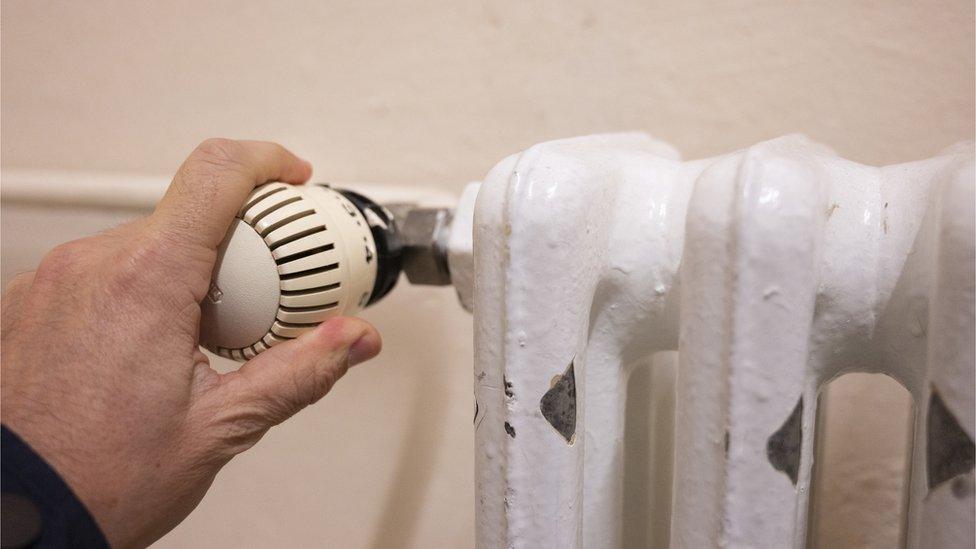
- Published18 October 2022

- Published19 October 2022
